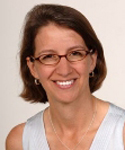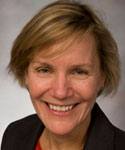Houston researchers collaborate on diagnostics, drug resistance, brain cancers in children and patches for failing hearts
Work on a new type of patch for failing hearts is one of four research projects and a scientific conference that will be supported by the latest round of funding from the John S. Dunn Foundation. Each project involves scientists based at Rice University’s BioScience Research Collaborative (BRC) and their collaborators at other institutional members of the Gulf Coast Consortia (GCC).
In addition to the heart patch, the fourth round of seed grants in the decadelong program will support research on low-cost diagnostics for sickle cell anemia, new antimicrobial agents to battle drug resistance and strategies to fight brain cancer. The scientific meeting will focus on the burgeoning field of telehealth, the delivery of health-related services via telecommunications.
The awards of almost $100,000 each support projects that foster interdisciplinary and interinstitutional research at the BRC. The GCC administers the program.

Rebecca Richards-Kortum
Sickle cell anemia
Rice bioengineer Rebecca Richards-Kortum and Russell Ware, a professor of pediatrics at Baylor College of Medicine (BCM) and Texas Children’s Hospital (TCH), are developing a point-of-care diagnostic test for sickle cell anemia, an inherited blood disorder that affects 300,000 babies in sub-Saharan Africa, almost all of whom die before the age of 5.
The test will rely on recent advances in low-cost paper microfluidic devices that will capture blood from a finger-prick sample and diagnose a child with a handheld reader.
Richards-Kortum is the Stanley C. Moore Professor of Bioengineering, a professor of electrical and computer engineering and director of the Rice 360˚: Institute for Global Health Technology. Ware is vice-chairman of global health at BCM and TCH, director of the Texas Children’s Center for Global Health and director of the Texas Children’s Hematology Center.

Janet Braam
New antimicrobials
Biochemist Janet Braam of Rice and microbiologist Heidi Kaplan of the University of Texas Medical School are seeking solutions to the growing problem of resistance to drugs by pathogens that cause tuberculosis, pneumonia and life-threatening diarrhea. Their strategy will be to disrupt specific pathways that are essential for microbial life but have no effect on human health.
That will require screening large collections of possible drugs through a trio of innovative, inexpensive and robust screens that specifically target methylerythritol phosphate (MEP) pathways. The researchers’ technique, inspired by basic plant biology and informed by clinical microbiology, involves E. coli bacteria engineered to mimic both microbial and human pathways; the bacteria become unique screens for pathway inhibitors that have little effect on human pathways.
Braam is a professor and chair of biochemistry and cell biology at Rice. Kaplan is an associate professor of microbiology and molecular genetics at the University of Texas Medical School.
Cancer’s signatures
Ka-Yiu San, a Rice bioengineer, and Ching Lau, a BCM pediatrician, will target the stem cells in tumors that relapse in children with brain cancer.
The researchers plan to establish a method to identify such cells in medulloblastomas, the most common malignant brain tumors suffered by children. They then will follow how the stem cells respond to treatment. Lau’s group recently observed that these cancer stem cells seem able to thrive under low-oxygen conditions that are harmful to normal cells. The researchers hope their results will lead to novel therapies for this disease and other cancers that resist conventional therapy.
San is the E.D. Butcher Professor of Bioengineering at Rice. Lau is an associate professor of pediatrics at BCM.
Cardiac patches
Jeffrey Jacot and Rafael Verduzco of Rice and Iki Adachi of BCM and TCH are developing sheets of material that will make it easier to culture and condition heart muscle cells that can help treat and even reverse heart failure.
The multilayered, liquid crystal material has microwrinkles that direct seeded heart cells to align in patterns as they respond to heat, ultraviolet light and electric and magnetic fields. The researchers expect the process to improve the sheets’ ability to grow and integrate upon implantation as they help hearts regenerate healthy muscle.
Jacot is an assistant professor of bioengineering at Rice and director of the
Pediatric Cardiac Bioengineering Laboratory at TCH. Verduzco is an assistant professor of chemical and biomolecular engineering at Rice. Adachi is an assistant professor of surgery at BCM and an associate surgeon, congenital heart surgery, at TCH.
Telehealth Research Institute
A Telehealth Research Institute (ThRI) summit will be held at the BRC to refine a vision for the institute, a collaborative research initiative under development by Rice, the University of Texas MD Anderson Cancer Center and the National Space Biomedical Research Institute.
Topics will include the diagnosis, monitoring and treatment of cancer and diabetes, information technology, computer science, robotics and health care policy. The ThRI mission also includes expanding the reach, efficacy and cost efficiency of telemedicine by developing relevant policy.
Project leaders are Jan Odegard, executive director of the Ken Kennedy Institute for Information Technology at Rice; Robert Satcher, an assistant professor of orthopedic oncology at MD Anderson; Michael Twa, an assistant professor of optometry at the University of Houston; and Cindy Farach-Carson, a professor of biochemistry and cell biology and bioengineering and vice provost for translational bioscience at Rice.

Cindy Farach-Carson
The John S. Dunn Foundation is a longtime supporter of collaborative research through the GCC, which builds interdisciplinary teams and training programs in the biological sciences that involve the computational, chemical, mathematical and physical sciences. GCC member institutions include Baylor College of Medicine, Rice University, University of Houston, the University of Texas Health Science Center at Houston (UTHealth), the University of Texas Medical Branch at Galveston and the University of Texas MD Anderson Cancer Center.






Leave a Reply